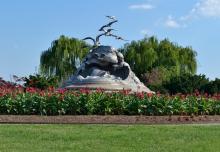 |
Navy – Merchant Marine Memorial
Washington, District Of Columbia |
Located in Lady Bird Johnson Park on Columbia Island, the Navy-Merchant Marine Memorial |
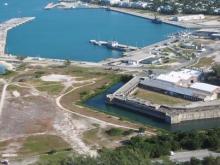 |
Fort Zachary Taylor Historic State Park
Key West, Florida |
Named after 12th president Zachary Taylor, the U. S. |
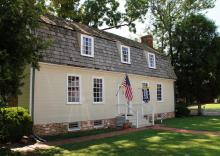 |
Wright’s Chance/Queen Anne’s County Historical Society
Centreville, Maryland |
Dating back to the 1700s, Wright's Chance is a Colonial period plantation house. |
 |
The Powder Magazine
Charleston, South Carolina |
Construction began on The Powder Magazine in 1712 and was completed by 1713, making it |
 |
Del Webb Sun Cities Museum
Sun City, Arizona |
The Sun Cities Area Historical Society/Del Webb Sun Cities Museum is dedicated to the p |
 |
Steamship Historical Society of America
East Providence, Rhode Island |
THE STEAMSHIP HISTORICAL SOCIETY OF AMERICA was established in 1935 as a means of bring |
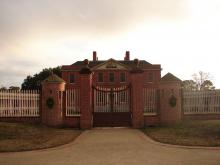 |
Tryon Palace
New Bern, North Carolina |
Tryon Palace is a modern recreation of the original palace, which served as the royal g |
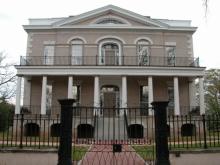 |
Hampton-Preston Mansion & Gardens
Columbia, South Carolina |
One of Columbia's oldest remaining historic houses, the Hampton-Preston Mansion was hom |
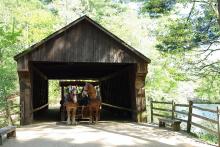 |
Old Sturbridge Village
Sturbridge, Massachusetts |
Old Sturbridge Village is the largest living history museum in New England, spanning o |
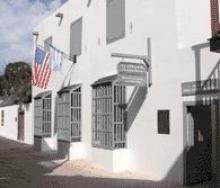 |
St. Photios Greek Orthodox National Shrine
St. Augustine, Florida |
The story of the first Greek migration to America, occurring in 1768, is retold in St. |
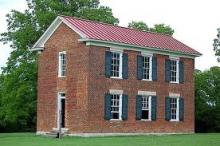 |
Boiling Spring Academy
Brentwood, Tennessee |
The Boiling Spring Academy is a restored 1830 one room school house located in Primm Hi |
 |
San Francisco De Asis Mission Church
Ranchos de Taos, New Mexico |
San Francisco de Asís Mission Church, c. |
 |
Fort Clinch State Park
Fernandina Beach, Florida |
Although no battles were fought here, the fort was garrisoned during both the Civil and |
 |
San Marcos De Apalache Historic State Park
St. Marks, Florida |
The many different flags welcoming visitors to the park demonstrate the colorful histor |
 |
Banadero Cave
Saipan, |
The Marianas were captured by Japan in 1914 and became a bloody battle ground in World |
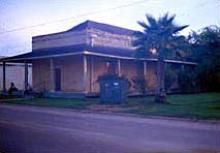 |
Fort Brown
Brownsville, Texas |
The initial fort was an earthen fortification constructed by Taylor's troops and called |
 |
Fort Mims
Stockton, Alabama |
In 1813, people on America’s southwestern frontier were fearful. |
 |
Pea Ridge National Military Park
Garfield, Arkansas |
Pea Ridge is the site of one of the most important battles of the American Civil War. |
 |
Fort Pulaski National Monument
Savannah, Georgia |
The Battle for Fort Pulaski in April 1862 marked a turning |
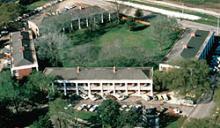 |
Pentagon Barracks
Baton Rouge, Louisiana |
The Pentagon Barracks of East Baton Rouge Parish has been won and lost by the Spanish, |
 |
Constitution Island
Highland Falls, New York |
In 1778, less than halfway through the Revolutionary War, the Americans were able to fo |
 |
Fort Michilimackinac
Mackinaw City, Michigan |
Much of this site is geared toward young children. |
 |
Oatlands Plantation
Leesburg, Virginia |
Construction of the estate began in 1803 in the Federal style and surprisingly finished |
 |
Belle Grove Plantation
Middletown, Virginia |
Belle Grove was home to the sister, Nelly Conway Madison, of President James Madison. |
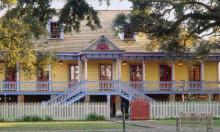 |
Laura Plantation
Vacherie, Louisiana |
Named by Lonely Planet Travel as the "Best History Tour in the U.S.," the one-hour guid |
 |
Poplar Grove Plantation
Wilmington, North Carolina |
|
 |
Ah Tah Thi Ki Museum
Big Cypress Indian Reservation, Florida |
The Ah-Tah-Thi-Ki Museum on Big Cyrpess Reservation explore |
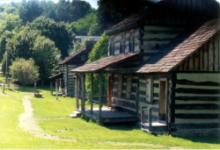 |
Westmoreland County Historical Society
Greensburg, Pennsylvania |
Westmoreland County gets its nickname because for many years it was considered the gate |
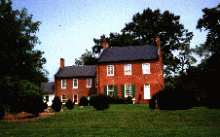 |
Beall Dawson Historic House Museum
Rockville, Maryland |
Though today Rockville, MD, is a bustling suburb of the nation's capital, it was but a |
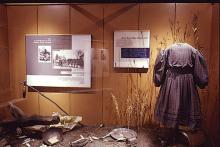 |
Mine Creek Battlefield
Pleasanton, Kansas |
On October 25, 1864, approximately 2,800 Union troops attacked and |































